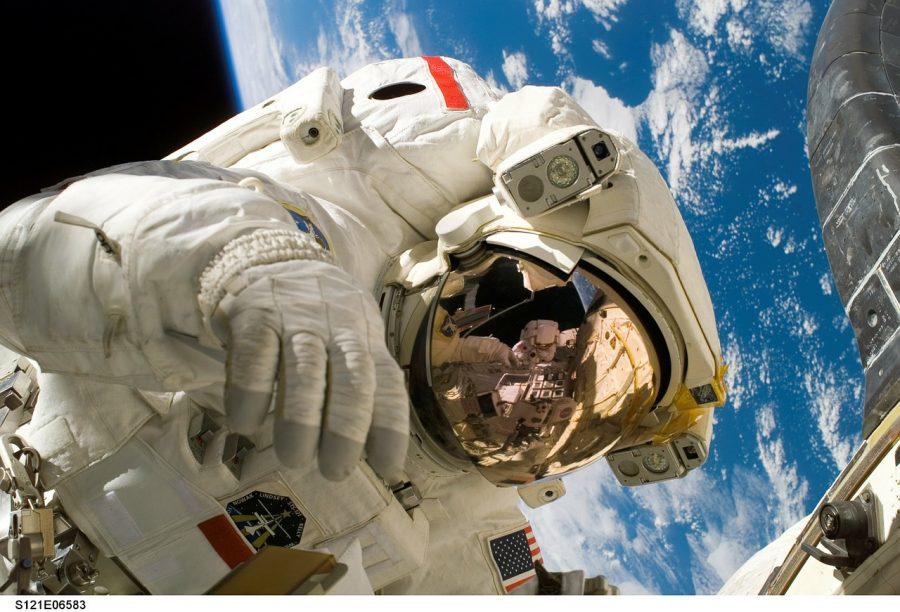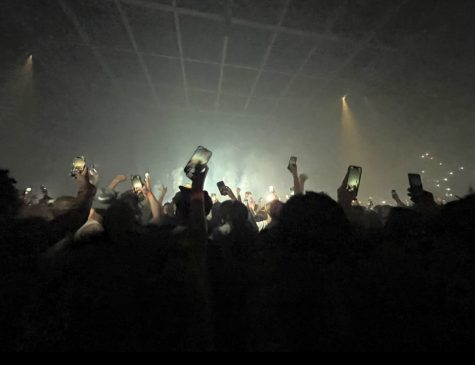Cosmic radiation may leave astronauts with long-term cases of ‘space brain,’ study says
October 11, 2016
This is your brain in space — and it does not look pretty. Scientists studying the effects of radiation in rodents say that astronauts’ exposure to galactic cosmic rays could face a host of cognitive problems, including chronic dementia.
The study, led by the University of California, Irvine and published in Scientific Reports, adds to a growing body of research on the harmful effects humans may reckon with as they venture out longer and deeper into space, whether on trips to Mars or potentially beyond.
“The most logical conclusion to draw from these studies is that cosmic radiation exposure poses a real and potentially detrimental neurocognitive risk for prolonged deep space travel,” the study authors wrote. “With the growing realization that space is a radioactive environment comes the need to more completely define these risks with more certainty through continued research.”
It’s well-known that radiation can damage neural tissue and hurt cognitive function; cancer patients with brain tumors who need radiotherapy end up with what the study authors called “severe and progressive cognitive deficits.” But it’s not clear exactly what effect space radiation has on the brain because there are different types of radiation and they’re delivered in different doses.
Space is filled with high-energy particles of all kinds that quickly would damage the cells of living things. Luckily, the Earth’s magnetic field shields us from the onslaught; but farther out in space, with only a spacecraft as protection, humans are exposed to much more radiation.
The Obama administration has set a goal of getting humans to Mars by the mid-2030s, and so scientists are increasingly trying to quantify those impacts, with hopes of understanding the risks to long-term spaceflight, and perhaps mitigating or even preventing them.
The NASA Twins Study — which is looking at the changes in former astronaut Scott Kelly’s body after his year in space and comparing them to his brother and fellow former astronaut, Mark Kelly — also includes a battery of cognitive tests in order to study the extent of what’s called “space brain.” (Humans working on the International Space Station, even for long periods of time, would not face the same level of exposure to galactic cosmic rays because the ISS is still protected by the Earth’s magnetosphere.)
Scientists at UC Irvine already had found significant changes in the brains of rodents six weeks after exposure to radiation, but for this new paper, they wanted to do a longer study to see whether the effects persisted. In a series of experiments involving mice and Wistar rats, rodents were exposed to fully ionized oxygen and titanium particles at the NASA Space Radiation Laboratory at Brookhaven National Laboratory in New York; the animals then were sent to study leader Charles Limoli’s lab at UC Irvine.
When UC Irvine researchers exposed mice to radiation much like what exists in outer space, the animals suffered brain impairment.
The scientists found that even six months after radiation exposure, the rodents still were suffering from brain inflammation and neural damage. Neurons sported fewer dendrites and spines, which meant their neural networks were less interconnected than in a healthy brain.
On behavioral tasks, the rodents exposed to radiation performed poorly on tests of learning and memory. Their ability to suppress unpleasant and stressful associations also declined — an effect that could make someone prone to anxiety over a multiyear trip to the Red Planet and back.
“The inability to moderate reactions to certain unpleasant stimuli could elicit elevated stress, anxiety and otherwise disadvantageous responses in unexpected or emergency situations,” the study authors wrote.
“Such conditions could clearly be problematic for astronauts and their capability to efficiently operate over the course of a deep space mission,” they added, “and impairments in executive function point to further potential complications in conducting complicated multifaceted tasks or in decision-making under stressful situations.”
The findings, while grim, don’t mean we should avoid venturing deeper into space, the authors noted.
“Unlike humankinds’ other great adventures, space is truly the final frontier,” they wrote. “Our exploration of strange new worlds should not be hampered by the fear of cosmic radiation exposure, but rather, inspire robust efforts to advance our understanding of a previously unrecognized problem.”
In the meantime, researchers already are thinking about ways to design spacecraft to have areas of high-shielding, and Limoli’s group is trying to find chemical compounds that could help human bodies defend against the damaging effects of radiation.
















